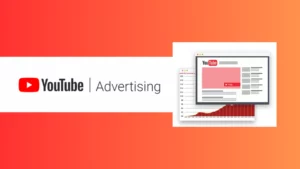Introduction
Welcome to the world of Search Engine Optimization (SEO)! In this comprehensive guide, we will take you through the ins and outs of Search Engine Optimization, providing you with a step-by-step tutorial that covers everything you need to know as a beginner. Whether you’re a business owner, a website developer, or a digital marketer, understanding SEO is crucial for achieving online success. So let’s dive in!
Table of Contents
- Understanding Search Engine Optimization Basics
- Setting Search Engine Optimization Goals and Objectives
- Conducting Keyword Research
- On-Page Optimization: Optimizing Your Website
- Off-Page Optimization: Building Authority and Backlinks
- Technical SEO: Ensuring Website Performance
- Creating High-Quality Content
- User Experience and Search Engine Optimization
- Local SEO: Targeting Local Audiences
- Mobile SEO: Optimizing for Mobile Devices
- Measuring and Analyzing SEO Performance
- Staying Updated with SEO Trends
- Common SEO Mistakes to Avoid
- Essential SEO Tools and Resources
- Discover “SEO 2023: Learn search engine optimization with smart internet marketing strategies”
- Conclusion

1. Understanding SEO Basics
Before diving into the intricacies of SEO, it’s crucial to understand the fundamental concepts. Search Engine Optimization is the practice of optimizing your website to improve its visibility in search engine results pages (SERPs). The goal is to attract organic (non-paid) traffic and increase your website’s ranking for relevant keywords.
2. Setting SEO Goals and Objectives
To embark on your SEO journey, you must define your goals and objectives. Determine what you want to achieve through Search Engine Optimization, such as increasing website traffic, improving conversions, or enhancing brand visibility. Setting clear goals will guide your SEO strategy.
3. Conducting Keyword Research
Keyword research forms the foundation of your SEO efforts. It involves identifying the keywords and phrases your target audience uses when searching for information related to your website. Use keyword research tools to find relevant keywords with a good search volume and moderate competition.
4. On-Page Optimization: Optimizing Your Website
On-page optimization focuses on optimizing the elements within your website to improve its visibility to search engines. Key on-page optimization techniques include:
Title Tags and Meta Descriptions
Craft unique, descriptive, and keyword-rich title tags and meta descriptions for each page to accurately represent the content.
Header Tags (H1, H2, H3)
Use header tags to structure your content and make it easier for search engines and users to navigate and understand your website.
URL Structure
Create clean and descriptive URLs that include relevant keywords and provide a clear hierarchy of your website’s structure.
Keyword Optimization
Strategically incorporate relevant keywords throughout your content, including headings, paragraphs, and image alt tags.
Image Optimization
Optimize your images by reducing file sizes, using descriptive file names, and adding alt text with relevant keywords.
Internal Linking
Link relevant pages within your website to improve navigation, distribute link authority, and help search engines discover and index your content.
User-Friendly Navigation
Ensure your website has a clear and intuitive navigation menu that allows users to easily find the information they’re looking for.
Mobile Optimization
Make your website mobile-friendly, ensuring it provides a seamless user experience across different devices.
5. Off-Page Optimization: Building Authority and Backlinks
Off-page optimization focuses on activities outside your website that can improve its visibility and authority. Key off-page optimization strategies include:
Building High-Quality Backlinks
Earn backlinks from reputable and authoritative websites to demonstrate your website’s credibility and relevance.
Social Media Marketing
Leverage social media platforms to promote your content, engage with your audience, and attract more visitors to your website.
Influencer Outreach
Collaborate with influencers or industry experts to amplify your content’s reach and build valuable connections.
Content Promotion
Actively promote your content through various channels, such as guest blogging, article submissions, and online communities.
Guest Posting
Contribute high-quality guest posts to other websites in your industry to gain exposure, build backlinks, and establish yourself as an authority.
Online Reputation Management
Monitor and manage your online reputation by actively engaging with your audience, addressing feedback, and resolving issues promptly.
6. Technical SEO: Ensuring Website Performance
Technical SEO ensures that search engines can crawl, index, and understand your website effectively. Key technical SEO fundamentals include:
Website Speed Optimization
Optimize your website’s loading speed by compressing images, minimizing code, and leveraging caching techniques.
Mobile-Friendliness
Ensure your website is fully responsive and provides an excellent user experience on mobile devices.
XML Sitemap Creation and Submission
Generate an XML sitemap to help search engines discover and index your website’s pages more efficiently.
Robots.txt Optimization
Optimize your robots.txt file to control search engine crawling and indexing of specific pages on your website.
Canonicalization
Implement canonical tags to indicate the preferred version of duplicate or similar content on your website.
Structured Data Markup
Add structured data markup (such as Schema.org) to provide additional context and enhance the visibility of your content in search results.
HTTPS Implementation (SSL Certificate)
Secure your website by implementing HTTPS with an SSL certificate, which encrypts data transmission and improves user trust.
7. Creating High-Quality Content
Content is a crucial component of any successful SEO strategy. Create high-quality, engaging, and informative content that resonates with your target audience. Incorporate relevant keywords naturally and focus on providing value to your readers.
8. User Experience and SEO
User experience (UX) plays a vital role in SEO. Create a user-friendly website with intuitive navigation, fast loading times, and easy-to-find information. A positive user experience enhances engagement and encourages visitors to stay on your site longer.
9. Local SEO: Targeting Local Audiences
If you have a local business, optimizing for local SEO is crucial. Claim and optimize your Google My Business listing, ensure consistent NAP (name, address, phone number) information across directories, and encourage positive reviews from satisfied customers.
10. Mobile SEO: Optimizing for Mobile Devices
With the increasing use of mobile devices, optimizing your website for mobile is essential. Ensure your website is mobile-friendly, loads quickly, and provides a seamless user experience across different devices.
11. Measuring and Analyzing SEO Performance
Monitoring and analyzing your SEO performance is essential to measure the effectiveness of your efforts. Use tools like Google Analytics to track key metrics such as organic traffic, keyword rankings, bounce rates, and conversion rates. Analyze the data to identify areas for improvement and make data-driven decisions.
12. Staying Updated with SEO Trends
Search engine algorithms constantly evolve, and staying up to date with the latest changes is crucial. Follow reputable SEO blogs and industry news sources to stay informed about algorithm updates and best practices.
13. Common SEO Mistakes to Avoid
Avoid these common SEO mistakes to ensure the success of your SEO efforts:
Keyword Stuffing
Overloading your content with excessive keywords that disrupt the natural flow and readability.
Poor-Quality Content
Publishing low-quality content that lacks value, relevance, or originality.
Ignoring Mobile Optimization
Neglecting the optimization of your website for mobile devices, leading to a poor user experience.
Neglecting Technical SEO
Failing to address technical SEO issues that can hinder search engine crawling and indexing.
Building Low-Quality Backlinks
Acquiring backlinks from spammy or irrelevant websites, which can harm your website’s reputation.
Neglecting User Experience
Providing a poor user experience, such as slow loading times, confusing navigation, or intrusive ads.
Overlooking Analytics and Data Analysis
Not tracking and analyzing SEO performance data to make informed decisions and identify areas for improvement.
14. Essential SEO Tools and Resources
There are several SEO tools and resources available to assist you in your SEO journey. Some popular ones include:
Google Analytics
A powerful tool for tracking and analyzing website traffic, user behavior, and other key metrics.
Google Search Console
Provides insights into your website’s performance in search results and helps identify and resolve technical issues.
Moz
Offers a suite of SEO tools for keyword research, link building, site audits, and rank tracking.
SEMrush
Provides comprehensive SEO features, including keyword research, competitor analysis, and site auditing.
Ahrefs
A popular tool for backlink analysis, keyword research, content exploration, and rank tracking.
Yoast SEO (WordPress plugin)
A widely used WordPress plugin that helps optimize content for SEO and provides on-page analysis and recommendations.
Screaming Frog search engine optimization Spider (Crawling tool)
Crawls websites to gather valuable data for technical SEO analysis, such as identifying broken links or duplicate content.
Read More: Marketing Ebooks: 10 Powerful Resources to Master the Game
15. Discover “SEO 2023: Learn search engine optimization with smart internet marketing strategies”

Learn search engine optimization and rank at the top of Google with SEO 2023—beginner to advanced!
Recently updated – EXPANDED & UPDATED MAY 2023
No matter your background, SEO 2023 will walk you through search engine optimization techniques used to grow countless websites online, exact steps to rank high in Google, and how get a ton of customers.
In this search engine optimization book you will find:
1. SEO explained in simple language, beginner to advanced.
2. The inner workings of Google’s algorithm and how it calculates the search results.
3. How to find “money” keywords that will send customers to your site.
4. Sneaky tricks to get local businesses ranking high with local SEO.
5. How to get featured in the mainstream news, for free.
6. Three sources to get expert SEO and Internet marketing advice worth thousands of dollars for free.
7. A simple step-by-step checklist and video tutorials, exclusive for readers.
Now, let me tell you a few search engine optimization marketing secrets in this book…
1. Most search engine optimization advice online is wrong!
If you’ve browsed through search engine optimization advice online, you may have noticed two things:
– Most SEO advice is outdated or just dead-wrong.
– Google’s constant updates have made many popular SEO optimization strategies useless. Why is this so?…
2. Google is constantly changing and evolving.
Some recent changes:
1. March 2023 – Google releases the March Core Update, and thousands of websites that don’t follow Google’s new guidelines lose their search rankings and traffic.
2. March 2023 – Google releases BARD, a rival to AI Chatbot ChatGPT, a breakthrough technology which has been completely changing the marketing industry as we know it.
3. February 2023 – Google releases the February 2023 Product Reviews Update, with new guidelines for affiliate SEOs who earn commissions from writing product reviews.
SEO 2023 covers these latest updates to Google’s algorithm and how to use them to your advantage. This book also reveals changes coming in 2023.
3. How to sidestep search engine updates and use them to rank higher.
Contrary to Internet marketing gossip, problems caused by Google updates are rarely irrecoverable, in fact, you can use them to rank higher—but you need the right knowledge. This book reveals:
– Recent Google updates—Google’s Cookieless Tracking Update coming in 2024, Google Analytics Update coming in July 2023, Google Bard and ChatGPT in March 2023, Google’s Core Update in March 2023, and more…
– New changes coming in 2023 and 2024.
– How to safeguard against changes in 2023 and beyond.
– How to recover from Google penalties.
4. Learn powerful link building techniques experts use to get top rankings
Link building is the strongest factor for ranking high in Google. Unfortunately, most widely-used methods suck! This chapter walks you through new powerful techniques that won’t get you in hot-water with Google. Now updated with more link building strategies, and extra tips for advanced readers.
5. And read the special bonus chapter on pay-per-click advertising.
In this special bonus chapter, learn to quickly setup pay-per-click advertising campaigns with Google Ads, and send more customers to your site overnight, literally. With this SEO book, learn search engine optimization from a fundamental level, achieve top rankings, and generate a wave of new customers to your site.
One of the most comprehensive SEO optimization and Internet marketing books ever published—now expanded and updated—of all best-selling search engine optimization books, this is the only one with everything you need. Scroll up, click buy, and get started now!
16. Conclusion
Congratulations! You’ve reached the end of our comprehensive beginner’s guide to SEO. By following the steps outlined in this guide, you’ll have a solid understanding of search engine optimization principles and strategies. Remember to prioritize user experience, create high-quality content, build authoritative backlinks, and stay updated with industry trends. With dedication and ongoing optimization, you’ll be well on your way to search engine optimization success.
FAQs
- How can I start search engine optimization as a beginner?
- To start search engine optimization as a beginner, refer to Step 1 in this guide for a comprehensive understanding of SEO basics.
- What should I learn first in search engine optimization?
- It’s essential to start by understanding the fundamental concepts of search engine optimization, as outlined in Step 1 of this guide.
- What is SEO 101?
- search engine optimization 101 refers to the basic principles and practices of search engine optimization, providing beginners with a solid foundation.
- What are the 4 types of SEO?
- The four types of search engine optimization are on-page SEO, off-page SEO, technical SEO, and local SEO. Each type focuses on different aspects of optimization to improve website rankings and visibility.
- How do I track and measure SEO performance?
- Utilize tools like Google Analytics and Google Search Console, as mentioned in Step 11, to track key metrics such as organic traffic, keyword rankings, and conversion rates. Regularly analyze the data to make informed decisions and identify areas for improvement.




